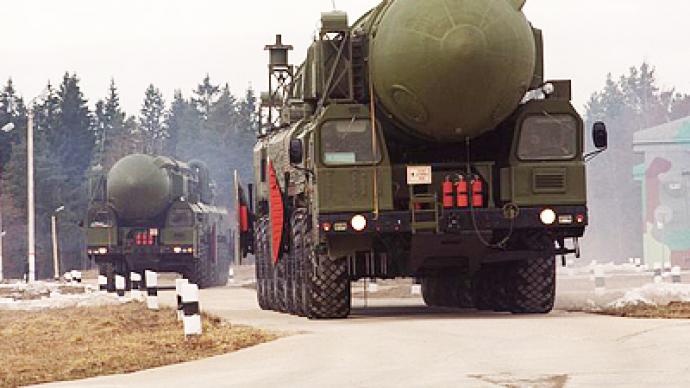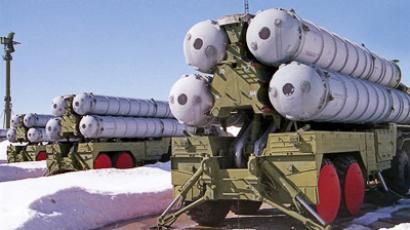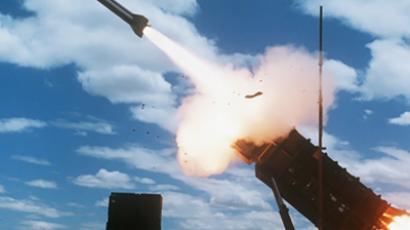Duma adopts bill on ratification of New START

The lower house of the Russian Parliament, the State Duma, has adopted the draft law on the New START treaty ratification in the third and final reading.
The document received the support of 350 deputies, with 96 voting against it, and one person abstaining. Under the bill, Russia can withdraw from the treaty if the scale of the US anti-missile defense system creates a threat to Russia’s national security. It also specifies the ratification terms and the powers of the Russian president, government and parliament in the fulfillment of the treaty.The deputies also adopted two statements, one of them addressed to the Russian president. They reflect the position of the State Duma on the reduction of strategic offensive arms and the maintenance and development of Russia’s strategic nuclear forces.“As the US has withdrawn from the Soviet-US Treaty on the limitation of anti-ballistic missile systems, special significance has to be attached to maintaining missile defense systems and all their components at a designated level of preparedness for improvement in case of a military threat against Russia,” the statement to the president reads.It further states that special significance “must be attached to the types of strategic offensive weapons that boast the best combat viability and the greatest potential for overcoming a missile defense system.”The other statement appeals to the international community.“The State Duma considers the deployment of the US non-strategic nuclear weapons outside the US unjustified and not complying with today’s Euro-Atlantic relations,” the second statement reads.“The link to the agreement on AMD is absolutely justified,” believes deputy head of the Institute of the US and Canada within Russia’s Academy of Sciences. “The anti-missile problem is most likely to come to the spotlight after the ratification.”He added, “The second problem, not on Russia’s initiative, will be related to tactical nuclear weapons.”During the second – main – reading, amendments were introduced to the bill providing for conditions under which Russia can withdraw from the treaty. One of the key conditions is the unilateral deployment by the US of its anti-missile defense system in Europe, which Russia considers a direct threat to its national security. Another amendment made specifies the possibility of conducting further negotiations on other types of weapons.The New START treaty was signed by Presidents Dmitry Medvedev and Barack Obama in April 2010 in Prague, following the expiration of the previous Strategic Arms Reduction Treaty on December 5, 2009. It also replaces the Strategic Offensive Reductions Treaty (SORT) signed on May 24, 2002.The new deal cuts by third the amount of nuclear warheads to 1500 – 1,675 units, as well as their delivery weapons to 500 – 1,100 units on each side. New START expires in 2020, but can be prolonged with both sides’ consent.
No easy path to New START
The US Senate ratified the treaty on December 22 after fierce debates with Republicans, who strongly opposed it. The US side noted that the treaty should not obstruct the development of the US anti-missile system and the modernization of the US nuclear arsenal. President Barack Obama has called the treaty a national security imperative. Obama pressed for its approval before a new Congress, which will be more Republican, assumes power in January. The actual signing and ratification by the US is considered Obama’s significant achievement on the international area that has partly strengthened his positions in the country in the light of failing to fulfill his election promise to end the war in Iraq. After the ratification by the US, Russian lawmakers stated that eventual ratification was only a matter of time – and made it clear that it would not take long. However, Russia had to respond appropriately to the amendments voted by the US. So the State Duma even decided to hold three readings, while normal practice is two readings. In particular, the US ratification resolution states that New START should not touch upon the subject of the US anti-missile program development. It also says that the treaty does not apply to new kinds of non-nuclear strategic weapons that could be developed in the future. Following the ratification in the State Duma, the bill will go to the Russian Parliament’s upper house, the Federation Council. And once approved, it will be submitted to the president to be signed.
Russia’s national security
Russia considers that the document “marks a transition to a higher level of interaction between Russia and the United States in the field of disarmament and non-proliferation,” as the Kremlin press service reiterated on Monday. But despite international importance of the accord, national security is still the key issue, which is reflected in the amendments by the Russian side. They oblige the federal government to make annual reports to the State Duma about the implementation of New START. They also bind the president to draft a program of the development of strategic nuclear armaments. Another essential condition indicated in the bill is that Russia should preserve its nuclear potential and combat ability, which means the development and testing of new weapons.














